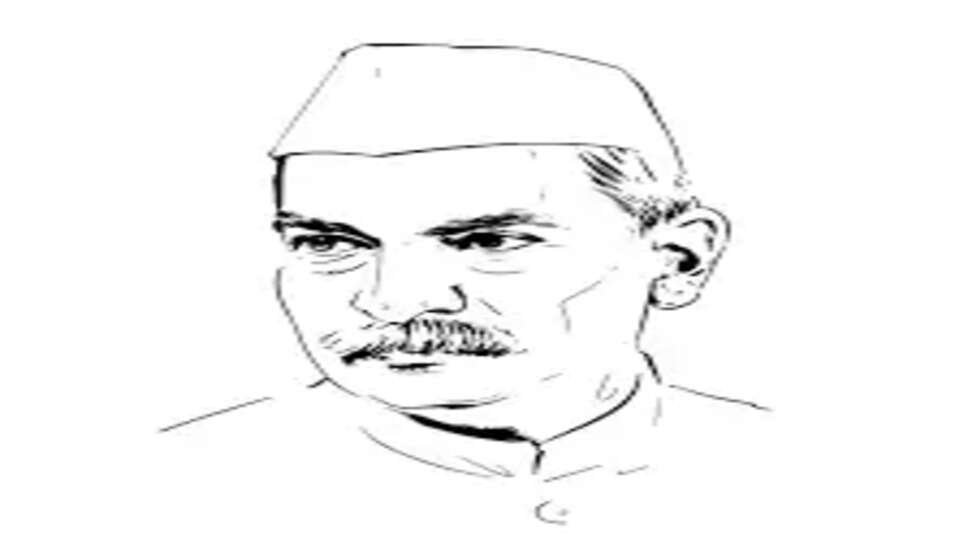Rajendra Prasad’s Final Speech Before the Adoption of the Indian Constitution: His Two Regrets

Rajendra Prasad, the first President of India and the Chairman of the Constituent Assembly, played a monumental role in shaping the country's Constitution. On November 25, 1949, in his closing speech before the adoption of the Constitution, he reflected on the work accomplished by the Assembly and shared his vision for India’s future. In this heartfelt and thoughtful address, he also expressed two regrets—issues he felt remained unresolved and posed challenges to India’s democratic aspirations. These concerns were deeply significant, as they reflected the socio-political realities of a newly independent India.
Context of the Speech
The Constituent Assembly had spent nearly three years (from December 1946 to November 1949) deliberating, debating, and drafting the Indian Constitution. On November 26, 1949, the Assembly formally adopted the Constitution, which came into effect on January 26, 1950. Dr. Rajendra Prasad’s speech marked the culmination of this historic process.
While the speech celebrated the collective efforts of the Assembly and the visionary leadership of figures like Dr. B.R. Ambedkar, Jawaharlal Nehru, and Sardar Vallabhbhai Patel, it was also a moment for introspection. Dr. Prasad’s remarks were a call to action for the leaders and citizens of India, emphasizing the responsibilities that came with the rights enshrined in the Constitution.
The Two Regrets
In his speech, Dr. Rajendra Prasad articulated two regrets:
1. Failure to Achieve Consensus on Language
One of Dr. Prasad’s primary concerns was the inability to resolve the contentious issue of India’s national language. While Hindi was eventually chosen as the official language, it was a decision fraught with compromises and intense debates.
Background of the Language Debate
- Multilingual India: India’s linguistic diversity posed a significant challenge. With over 1,600 languages and dialects, choosing one language to represent the nation was no easy task.
- Proponents of Hindi: Many members of the Constituent Assembly, particularly from northern India, advocated for Hindi as the national language, arguing that it was widely spoken and rooted in India’s cultural heritage.
- Support for English: Others, including representatives from southern states, preferred English or a neutral approach, fearing that the imposition of Hindi would marginalize non-Hindi-speaking regions.
- Compromise: The Assembly settled on a compromise where Hindi would be the official language, with English continuing as an associate language for 15 years (a timeline that was later extended).
Dr. Prasad’s Regret
Dr. Rajendra Prasad lamented that the Assembly could not reach a unanimous decision on the language issue. He believed that linguistic divisions had the potential to fragment the unity of the nation. While he supported Hindi, he also recognized the need for inclusivity and mutual respect among India’s diverse linguistic communities. His regret stemmed from the fear that unresolved linguistic tensions might hinder the dream of a united India.
2. Lack of Adequate Representation for Moral and Ethical Standards in Leadership
Dr. Prasad’s second regret was about the caliber and integrity of future leaders who would be entrusted with implementing the Constitution. He emphasized that the success of the Constitution depended not only on its content but also on the character and values of those who would operate it.
Concerns About Leadership
- Moral and Ethical Standards: Dr. Prasad expressed concern that the Constitution, no matter how well-drafted, could not safeguard democracy if those in power lacked moral and ethical principles.
- Potential for Abuse of Power: He warned against the misuse of authority and stressed the importance of accountability, integrity, and selflessness among political leaders.
- Dependence on Individuals: Dr. Prasad highlighted that the true test of the Constitution would lie in its execution, which required virtuous leadership committed to the public good.
Dr. Prasad’s Vision
- He envisioned leaders who would prioritize the nation’s welfare over personal or political interests. His regret was rooted in the apprehension that the quality of leadership might not always align with the ideals of the Constitution, potentially jeopardizing India’s democratic journey.
Broader Implications of the Regrets
Dr. Prasad’s concerns were prescient, as they touched upon two critical challenges that have continued to shape India’s trajectory:
1. Linguistic Unity
- Post-Independence Developments: The language issue resurfaced in the years following independence, leading to demands for reorganization of states along linguistic lines. This culminated in the formation of states like Andhra Pradesh (1953), based on linguistic identity.
- Linguistic Federalism: While India managed to accommodate its linguistic diversity through a federal structure, tensions around language continue to surface occasionally, particularly in debates over the primacy of Hindi versus regional languages.
2. Quality of Leadership
- Political Corruption and Governance: Over the years, concerns about corruption, nepotism, and erosion of ethical standards in politics have validated Dr. Prasad’s apprehensions. Scandals and power struggles have often diverted attention from governance and public service.
- Emerging Reforms: Despite these challenges, India has witnessed several efforts to strengthen transparency and accountability, such as the introduction of anti-corruption laws, electoral reforms, and public interest litigation.
Legacy of Dr. Rajendra Prasad’s Speech
Dr. Prasad’s speech remains a cornerstone in the history of Indian democracy for several reasons:
1. Call for Unity
His emphasis on linguistic harmony and respect for diversity continues to resonate in a country that thrives on pluralism. His words remind us of the need for dialogue and compromise in resolving divisive issues.
2. Ethical Leadership
By stressing the importance of morality in public life, Dr. Prasad set a high benchmark for political leadership. His message underscores the ongoing need for leaders who embody the values of integrity, humility, and service.
3. Constitutional Ideals
Dr. Prasad’s reflections underscore the Constitution’s role as a living document, adaptable to changing circumstances but dependent on the commitment of its citizens and leaders to uphold its principles.Dr. Rajendra Prasad’s final speech before the adoption of the Constitution was a blend of celebration and caution. While he acknowledged the monumental achievement of creating a comprehensive and forward-looking Constitution, his two regrets highlighted critical areas that required ongoing attention.The unresolved language issue and the potential challenges of ensuring ethical leadership were not merely concerns of the moment but enduring themes in India’s democratic evolution. His speech serves as a timeless reminder that the true strength of a democracy lies not just in its laws and institutions but in the character of its leaders and the unity of its people.As India continues to grow and face new challenges, Dr. Prasad’s words remain a guiding light, urging the nation to strive for inclusivity, integrity, and collective progress.
